Most babies are born healthy and stay that way. There is a small percentage of infants who are born healthy and become sick with a metabolic disorder. Fortunately, in Australia, there is a screen for such disorders before they become obvious. Read on to learn more about the newborn screening test provided free-of-charge to all Australian infants.
What is the newborn screening test?
The newborn screening test routinely screens for rare conditions and is done via a simple heel prick blood test within three days of baby’s birth, before symptoms of any conditions are obvious. Newborn screening can pick up signs of more than 25 metabolic conditions, including congenital hypothyroidism, cystic fibrosis, and amino acid disorders like phenylketonuria (PKU) and galactosemia.
Screening tests won’t tell you that your baby has a condition. It will tell you that your baby is at increased risk for a condition. In the very unlikely event that your baby screens positive for a condition, your baby’s doctor/paediatrician can verify the results and discuss treatment options with you. Early diagnosis means treatment can be started immediately and it helps with the prevention of serious intellectual or physical disability.
Do I need to give consent for newborn screening?
Your midwife will ask for your permission to do a newborn screening test and require you to sign the newborn screening card. You can decline to have the screening done, however in this instance, if your baby becomes ill at any stage, you’ll need to tell your doctor that your baby didn’t have a newborn screening. This will help them with a diagnosis.
How is my baby’s blood sample taken?
A heel prick is a quick and safe way to take blood and minimise the amount of blood being taken from a newborn baby. A midwife will normally do this test, taking your baby’s heel and pricking it to collect a few drops of blood on special filter paper. The filter paper dries, and it is sent to a laboratory where your baby’s blood is tested. Ask your midwife if you’d like to delay testing, to find other places where the test can be carried out.
How long do results take?
Results are usually completed within six weeks. You will only be contacted if your baby’s test results come back abnormal, and with instructions about what to do next. As “false positives” can occur, a second test is often needed. Sometimes too, a second test is needed for reasons including if there wasn’t enough blood to perform the screening test or if test results weren’t clear.
Almost all babies have normal results. It is only about 1 in 1000 babies in Australia that have an abnormal result.
What happens when the tests and results are finished?
The National Pathology Accreditation Advisory Council requires screening cards to be stored in a secure location for 28 years. The screening card is stored so your baby’s blood sample can be found easily if more tests are needed. There is a contact number on the consent form, where you can request the screening card to be destroyed after two years.
For further reading and sources about newborn screening tests visit:
